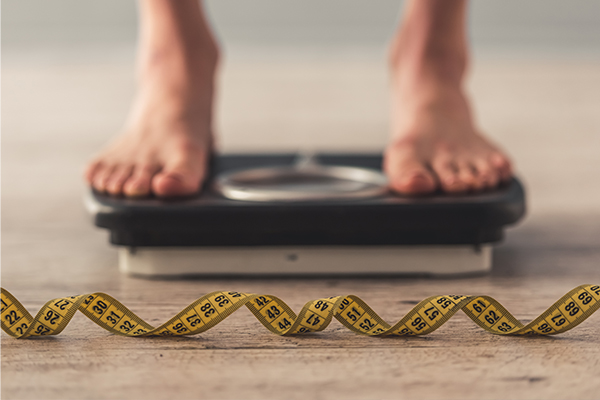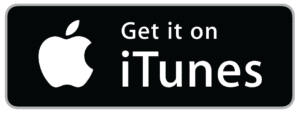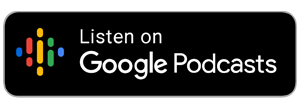Are you sure you’re eating the right food? Are you disciplined enough? Isaac Schulman discusses Dr. Bo’s program to improve our lifestyle.
Listen to the podcast here:
Download the audio file here.
How to Be Your Greatest Self Without Counting a Single Calorie
Isaac, thank you so much for joining me on the show.
Thanks so much for having me. It’s a pleasure to be here.
You and I have known each other for quite some time. We had the privilege to work with you on some of the marketing initiatives for Dr. Bo’s. First, for our readers, give us a little bit about Dr. Bo’s program and more importantly, how you got into the space.
Dr. Bo’s is a medical-based nutritional guidance and counseling program. We help individuals that are looking to get healthier, change their lifestyle, lose weight and feel great. We create customized plans that fit well into both their physical needs and practical needs. Their physical needs are what their body requires. The practical needs are what their lifestyle requires. It’s very common that a patient comes to us and they’re struggling with eating differently on the weekends compared to the weekdays.
We don’t just give them a weekday plan. We give them a Shabbos plan, Yom Tov plan, plan for when they’re on vacations and for weeks where they have a lot of social obligations like Simchat or family gatherings. That type of real-life approach using real food that comes out of their fridge and pantry proves to be very successful.
Personally, I got into the field through a number of different steps that I have taken in my life years ago. When I was in school, I took a lot of courses and got an education in nutrition. Once I got married, very similar to a lot of other people, I ate more and differently, then I gained weight. In the first five years of being married, I had put on well over 50 pounds. I continued to grow in my waistline for many years thereafter until I was approaching my 30th birthday. I bumped into my sister, who was losing weight on this program and feeling great.
I started off as a patient and lost a lot of weight with Dr. Bo’s. I started to feel better, get healthier and have a lot more energy. Everything in my life improved once I started. I ended up taking a job there. Over the years, that job turned into a partnership and that partnership turned into even more opportunities for me where I ended up buying out the other partner and then I owned the business. I don’t just live the dream. I work on the dream every single day.
First of all, I love the part that you were a client first and then looking to get into that space. The people that are reading this know how many times we spoke about the concept of being passionate about what you do. People want to buy a business and start a business. They want to be able to be successful, make money out of it and have a different lifestyle based on the business.
Ultimately, you want to do this with passion and the best passion you can have. If you have gone through the process yourself, you saw the benefits and what people have by losing weight or going through this program versus others and ultimately, at that point, joining the company. That’s an amazing note for our readers to pay attention to.
My mother used to say to us, my siblings and me growing up, three things over and over again, “Marry your best friend, learn a lot of Torah, so you’re never bored and be passionate about what you do for a living. You’ll always be happy.”
I have a question people always ask me, “What if I’m not passionate about it and I just started because I stumbled upon this business?” I say, “You could be very successful even without the passion, but you will not reach its fullest potential if you’re not passionate.” Is that a fair statement?
Without a doubt. Sometimes we do find ourselves in a little bit of a rut, but there are always areas of our business that we could look into and find ways to be passionate about. One thing that I have found from my personal experience is the psychology of people like what they’re good at. If your area of expertise is marketing, get into the marketing of your business because that passion will shine through because you’re good at it.
[bctt tweet=”Don’t just live the dream; work the dream every single day. ” via=”no”]
If your expertise or area of core competency is not marketing but client relations, then get more involved in client relations because the more things you focus on that you’re good at, the more passionate you will become about them. There are always areas within the business that we can find that need improvement and we can put more of our energy into.
I have a lot to cover with you in this episode. For readers, they’re used to speaking about leadership, growing and scaling a company. Ultimately, this one I want to divide into two. I want to speak about that first and then we will get into the nature of goals when it comes to weight loss. Ultimately, you got to be healthy in order to grow your business and personal growth starts with being able to self-control. We will talk about that. Let’s start first on the business side of things. I’m going to try to ask some questions that are very unique to your structure. You could answer it in a way where people who might not be in a specific business but the service business, in general, could take some notes out of it.
Your business is a service business by nature. You have a program, client intake and you’re ultimately servicing those clients. What sets your company apart from others is the unique personal attention you’re giving to clients, which means that you have to have a system and structure for those things. What would you say are the key parts that you’ve put in place in order to be able to set up a foundation so that you’re able to grow, do a marketing campaign, get new clients and ultimately rinse and repeat them in a way that the system doesn’t break down?
Keeping your ear to the ground is one of the most critical steps that you can take when trying to understand how to grow a business. Keeping your ear to the ground, meaning understanding what it is that the clients need. What is missing in the marketplace? Where are you excelling? What areas have you taken within your business that are helping add value to the client or customer experience?
The opposite is also true. It’s understanding where you’re failing, where your weaknesses are and what’s lacking. In order to sit back and look at your business objectively and make decisions in terms of where you want to grow, the first step is understanding where your strengths are so that you can take advantage of those strengths and continue to grow those strengths but also understanding where your weaknesses are so you can compensate accordingly and take corrective action.
Let’s speak specifically about human interaction and personal touch. You’re not relying on technology to grow in scale because it’s the human interaction for you. How do you measure that? Does each nutritionist have a certain amount of patients they could see a month? Therefore, as you bring in new clients, you know how many nutritionists you need to have on staff. What could you share with our audience? One of the challenges service-based businesses have is how do you prepare for growth and scale?
The nature of our business and this is very helpful to the individual that’s trying to lose weight is making commitments in terms of term periods. Don’t just make broad statements like, “I want to lose weight,” but say, “I want to focus on this endeavor for three months. I want to lose X amount of pounds. In six months, I want to lose Y amount of pounds. I want to change my lifestyle in this or that area.”
When we are doing an intake and onboarding a new client or patient, we’re anticipating based on the questions we’re asking and the answers that we’re receiving how long that individual will need services. We study data to understand the average number of appointments per week that each patient is taking. We offer unlimited appointments. Some people will talk to us once a week and others will speak to us 2 or 3 times a week. There are many people that only want to speak to us 2 or 3 times a month.
We know from information that we collect data that we store and analyze what the average patient uses. We also use software to clock them in and out of their appointments, so we know how much time that’s taking. We can use that information to plan for growth. We look at seasonality trends, appointments per hour and the number of appointments per week. We staff accordingly based on those seasonalities and trends that constantly shift up and down over the year.
You mentioned something valuable, and I want our readers to take note of that, which is being on the ground and listening to understand what’s happening on the ground. The line that I use a lot was from New York City’s Mayor Bloomberg. He used to ride the trains. He said, “If I want to fix the MTA, how could I fix it and know what’s happening if I don’t ride the train?” This is a very valuable concept.
You see it with Undercover Boss or spy shoppers and companies. I’ve seen it as much as people seek callings and companies. There are all these leadership calls and they request a quote. They want to see the process and how long it’s going to take or whatever it is. What are some practical tips or things you have implemented to gain that knowledge on what’s happening on the ground?
First of all, we have in our office an open-door policy. Some bosses need to sit in an office for certain privacy, but that open-door policy allows patients, clients and employees to come and go as they see fit and express any concerns that they have. We don’t have a system in place where there’s a hierarchy like you would see in a conventional company where there’s a CEO, COO, managers, people below them and staff below that.

Instead, we have more of a collaborative approach where everybody is very much so encouraged to push back on ideas, give out ideas and challenge the authority that says, “This is the way it should be done.” We all put our heads together and work in teams because we feel that the notion that two heads are better than one is very true. Ten heads are better than two.
We put all our heads together and challenge each other’s ideas. We have an open-door policy. You mentioned a very successful businessman, Mike Bloomberg. It reminded me of something I read about Mark Zuckerberg, the Founder of Facebook. He does not sit in an office. He sits in the cubicle amongst his staff because he wants to hear what’s going on.
When I first got into this field, I was very much involved in each department’s function. I wanted to know what is involved in simple things, even administrative tasks like booking an appointment, answering the phones, fielding questions that come across the line, bookkeeping, purchasing, marketing and the most important thing, direct patient care.
By rolling up my sleeves and getting busy within each department in the organization, I understand the intricacies of how things work and what it takes. I see pain points. I work with the staff members that are in charge of those particular functions. We address those pain points not in an authoritative way but in a collaborative way. That makes a very big difference.
This is very helpful when you’re a smaller company, especially if you’re so actively involved on all sides of the business and then you start growing and bringing in other people. My question is, are you relying on SOPs in order for those protocols to be followed and systemized for scale or is it a lot of handholding and training manual?
The standard operating procedures are locked in place and they’re pretty rock solid. They were developed over many years. We use a combination of software and training to gauge those things and do a good job in that area. Most of the training for people who come into our practice and business focuses less on the systems and procedures because those were built in a pretty fail-safe and user-friendly way.
Instead, the focus is more on the culture in the business, the company of putting the patient first and each client ahead of our own particular needs and servicing them with the highest level of care. It’s what we call concierge care. We don’t want a phone call to go unanswered for more than a few minutes. We don’t want a text message to come across and not get replied to within seconds.
When the phone rings, we want to pick up that phone by the second ring and make sure that all of our attention is focused on the individual that we’re speaking to. That cultural shift in the business many years ago proved to be very beneficial to us. We spend a lot of our onboarding in getting the new employee acclimated with that culture and embedded into that reality because we find that to be the most important.
Before we move to the next segment, which is very important and our readers will appreciate, here’s one final question on this. When you’re speaking to other small business owners and people that are looking to scale and grow, what would you say are the 1 or 2 things that you always have to keep a finger on the pulse in order to be able to grow a company? I don’t like to use the number one because when you’re speaking about growing businesses, there’s no number one but there might be a set of things.
You got to know how much money you have. That’s important. If you’re spending money you don’t have, you could get in trouble very quickly and if you’re leaving too much money on the table and not spending it wisely. The economics of the businesses is super important and understanding that. What is the demand in the marketplace? People generally, especially small business owners like myself, often get into a routine, a comfortable position and let things operate more autonomously.
In this day and age, even more so with the pandemic and the consequences that the pandemic has had on business, businesses need to be agile and adjust to the shifting demands in the marketplace. If you don’t know how much money you have, how much money you shouldn’t be spending, you don’t truly understand the economics of your business and the proper model. If you’re not appreciating the shifting change in the marketplace and what the new demands are, then you’re going to be left behind.
It reminds me of the part about economics. I would add that it’s not about knowing the economics. It’s knowing from an economic standpoint what you want the next move to be. For instance, a lot of people speak about growth and they’re busy with the top line. At the end of the day, they’re shrinking their margins while other people say, “Let’s focus on tightening our margins and getting more out of whatever we already have in our pool.”
[bctt tweet=”You got to know how much money you have.” via=”no”]
To know that economics enough, business owners have had multiple episodes speaking on that topic in the past where it’s mind-boggling. Sometimes you have executives making decisions in millions and then have a zero understanding of the economics of the business. As much as you have a bookkeeper, an accountant and those people play a role in the accounting part of the company, it doesn’t dismiss business owners of having a finger on the pulse on the basic economic numbers.
I like to say all the time that you have to do something with the data. We collect so much data and information on our businesses. We have bookkeepers. Often, small businesses are using that information to simply pay their taxes. When we have data, we have to collect it and analyze it and not only analyze it but also react to it.
If we’re not looking at the data the right way and understanding, exactly to your point, thinking that it’s all about growing the top line while ignoring the bottom line or thinking only about the bottom line without understanding the potential opportunities at the top line, then we’re not analyzing things the right way. Reacting to the data is the third step.
First, you collect it, analyze it and then react to it. Reacting to it is the most difficult part because human beings’ nature is to get stuck in their ways and stay comfortable with the status quo. When we shake things up, challenge ourselves and say, “This information that we collected that we’re analyzing is not looking right to us. Why is that? What do we need to do to react to that?” We’re taking practical day-to-day steps that can grow the companies that we run over time in a very substantial way.
I remember I visited an executive of a relatively large company. His desk was pretty messy. I asked him, “What are all these stacks of papers?” He proudly says, “Every month, my assistant, together with the data analyzer, brings me a whole stack of reports based on how we did the month before. It sits here.” I said, “What do you do to those reports? Maybe there’s a better way where you can utilize your assistant with your other data analyst.”
In our company, we run on EOS. One of the things on EOS is every Tuesday, we have a Level 10 meeting and there’s a bird’s-eye view on our scorecard, which is the metrics of the company. When we speak about the metrics, I speak to my team and say, “I don’t want to have a single metric on that sheet of paper that tells us one way or the other. We can’t even take action based on that.” When you look at reports and data, the data not only needs to be a hard fact. Data is king, but you need to be able to act on it. If you have a piece of data and you don’t know what to do with that data, then it’s a waste of time when you’re collecting that data.
Let’s get to the fun part. Based on statistics and maybe you have the exact statistics, the number one New Year’s resolution is about losing weight. The number one goal that usually gets broken the fastest is losing weight. Mainly, I wanted to shed some light on what goes on in a person’s mindset when they make that resolution and what goes on in their action when they break that resolution. Everybody could lose some pounds or at least a high percentage of our readers. Shed some light on this process.
Whether you’re a religious person or a secular person, whether you celebrate the New Year in the fall or in the winter, everybody goes through a lot of parties leading up to that New Year. In the free market, we have a lot of Sukkot. In the secular market, we have a lot of holiday parties. We get to a certain point as we get closer to the New Year where we’re feeling very uncomfortable.
We have been sluggish, eating too much, drinking too much and gaining way too much weight. We reached this point where we don’t feel good in the skin that we’re wearing. We jump into something and make a commitment because we’re at our most ambitious point in that process where we don’t feel good. After a couple of days or weeks and after a handful of pounds come off, we start to feel better and we’re not anywhere near our goal.
Let’s say an average person will come into our program and we help people lose 5 pounds, 105 pounds and everything in between. The average person coming into our program wants to lose 40 or 50 pounds. When you’re 50 pounds overweight and you drop the first 10 pounds in the first two weeks, you feel amazing not because you’re empowered, more in control and feeling better about what you’re eating but because you dropped 10 pounds. That’s a sizeable number even if you still have 40 to go.
The problem though is that we often lose sight of where our goals are because we feel so much better. That ambition becomes waning. It falls by the wayside. What also contributes to an individual’s demise is struggle. If I told you that there’s no milk in the fridge at home and your wife wants you to pick up a gallon of milk, you can calculate pretty accurately how long it will take to get to the local store, how much money it will take and how long it will take to get back home.
It’s something that you’ve done over and over again and you’re very familiar with. If I say to you, get in the car and drive from Brooklyn to Los Angeles all the way across the country, you don’t have a lot of experience driving across the country. It would be hard to gauge how much is it going to cost in tolls and gas station stops. It’s a long journey. It’s hard to imagine or envision what to expect.

We know from our experiences in life that driving across the country is inevitably going to require us to stop to sleep, eat, gas or go to the bathroom. It’s a long journey. If you’re traveling 3,000 miles across the country and you’re 500 miles in and all of a sudden there’s a construction detour and you have to get off the highway, are you going to turn around and go home? You’re not going to turn around and go home because you’re 500 miles in and you know have 2,500 miles to go.
You’re going to figure out a way to adjust and maintain the singular most important factor for anybody looking to lose weight. It’s more important than any other factor. If you want to successfully lose weight and get to your goals, you need the same thing that any other successful person needs, whether that’s successes in business, relationships, making money or studying a subject matter. It’s resiliency. It’s our ability to pick ourselves up when we fall, dust ourselves off and keep going.
When you started in business, Meny, I’m sure that you have made many mistakes as I have. I’m sure you have had many successes but also many failures. What makes you a successful individual is your ability to keep fighting, keep that resiliency intact and go towards your dreams. When it comes to weight loss, the same thing exists.
This analogy of driving across the country is there to help people understand that we’re inevitably going to hit obstacles on any long journey, whether it’s weight loss, getting healthier, building a business or a family, learning a subject matter or whatever that ambition might be. It comes with a lot of meaning and value, but at the same time, it comes with obstacles. If you have that resiliency factor, you will succeed. If you don’t have that resiliency factor, then you need to find it. Otherwise, you will fail.
You mentioned failures in business. There’s a line that I use very regularly, which is, “Not every stumbling block is a reason to quit,” which means if you have a stumbling block, that’s the reason to find a detour and pick yourself up. There was a previous guest, Charlie Harary, on the show. He has a beautiful video out there where he mentioned the person on diet going to the closet, opening it up, trying to take out a cookie, closing back the closet and not taking out a cookie 3 or 4 times. They say, “Forget it.” They eat, take out a cookie, and suddenly, they’re eating the full bag of cookies. They’re saying the next morning, “I quit my diet.” That’s the worst thing. Not only did you eat a cookie, but you’re quitting the diet for good.
We say at Dr. Bo’s, “It’s never the deviation. It’s always the fallout.” The cookie is that little deviation. The fallout is we convince ourselves, “We fell. We might as well give up because we’ll never be successful.” Every single person on a diet at some point in time has that cookie because we’re human beings and human beings that live in the real world have temptations. The reality is we succumb to those temptations sometimes. It’s not about the temptation or deviation. It’s about what we do in reaction to it. If we give up on ourselves, we’re going to fail. If we pick ourselves up and keep going, we’re going to eventually find our pathway to success.
I want to dive in a little deeper into the human psychology behind successful people who make that commitment versus people who fail. At one point, we spoke about the concept that any diet that’s not teaching you a way of living might be a short-term fix, but ultimately, it’s not sustainable. We also know sometimes the person is so committed and all of a sudden they’re starving to death because they want to lose weight, but it’s not sustainable.
What is that happy medium? There’s somebody reading this and saying, “Maybe I’m ready for a program. I want to start living healthier and doing certain things.” What practical tips could you give a person reading this about how to go about this whole concept of healthy eating or dieting in general?
People have to get out of their own way when they’re thinking about what it takes to be healthy, have a healthy relationship with food and be at a healthy weight on the scale. People think it’s about deprivation, sacrifice and saying no when you want to say yes. It means that we can’t enjoy life while simultaneously being healthy. All of that is 100% false. One of the biggest enemies of weight loss is actual hunger.
People think that a prerequisite to weight loss is hunger. I say it’s the enemy to weight loss. We need to be satisfied and satiated. We need to be eating but eating the right foods at the right time in the right portions and prepared the right way is what’s going to give us the balance between feeling satisfied, satiated and also meeting our goals, whether it’s on the scale, with the blood pressure cuff on our arm, our health or general well-being.
How will you differentiate people who are very overweight and need to get that weight off versus people who want to have a routine? What are the no-noes when it comes to food? You have seen it a lot. Where are the places where people make wrong moves? Is it eating late? There are all kinds of different myths out there. Is it eating late, eating in larger portions or double portions? Where do you feel people let go the most if they only would know what effect it has on their health?
People, in general, look at their plan and think in very broad strokes. “I’m an unhealthy eater because of certain types of foods that I eat.” Others think that they’re an unhealthy eater because of the portions that they consume. To answer your question, it’s a combination of all of the above. It’s what we’re eating, how much we’re eating and when we’re eating.
[bctt tweet=”If you have that resiliency factor, you’ll succeed.” via=”no”]
We generally get into certain habits or routines and we never stop to look at those habits or routines and break that cycle. I’ll give you an example. After the season of holidays between Rosh Hashanah and Shemini Atzeret, if you remember in 2021, it was a tough schedule. We had Shabbos, Yom Tov and then Chol Hamoed. It was a full month of non-stop eating. When I came out of that period, I found myself about 3 pounds above where I wanted and needed to be.
I have this very strict rule. Whatever goes up has to come down. I could go ahead and enjoy Yom Tov, a vacation, go out to dinner with friends or family and enjoy myself. I do on a very regular basis and lose whatever I gain. If I go out and it’s one meal and I gained 0.5 pounds, I lose that 0.5 pounds. If I go for a week of Pesach, as an example and it’s non-stop eating, which causes me 3 or 4 pounds, I lose that 3 or 4 pounds.
Long story short, I come out of this season of holidays after Shemini Atzeret and I’m struggling with this 3 pounds. What I noticed was that throughout the month I was home, I wasn’t working nearly as much because it was a lot of Yom Tovim over the weekdays, I started to graze. Grazing and we’re all familiar with this, is when we all pass through the kitchen and there’s a chocolate chip cookie on the counter. We grab it and pop it into our mouths as we’re walking through.
There’s a bowl of nuts on the counter. We take a handful and start munching on it as we’re walking out the door. We have a snack on the passenger seat in our car. We sit on the couch when we’re unwinding after a long day, whether it’s reading or watching TV and there’s a snack on our lap. Sometimes we have snacks at our desks. There’s this grazing that goes on.
I looked at that and thought in the most linear way, “What is something I can do to help break this cycle of a month-long of constant grazing?” I went to a simple concept, which is, “I am going to sit in the same chair at my kitchen table for everything I eat for the next seven consecutive days. It’s not a long-term commitment, not for the next six months or the rest of my life. For the next seven days consecutively, anything that I eat inside my house has to be at that chair.”
Even if I want a handful of nuts as I’m passing through the kitchen or a chocolate chip cookie that I pull off the counter, I go to that seat and sit down. That created more focus, self-accountability and self-awareness around that grazing and eating. After doing it for seven days consecutively, it broke that cycle and habit and I no longer have to eat in the same chair. I’m naturally more aware of it because I trained and flexed that muscle by figuring out what is wrong and what steps I can take to correct it.
It’s that linear thinking that can help everybody in their own individual struggles. “Where do I go wrong?” It’s not something broad like you’re suggesting, “I eat too late at night.” It’s always a handful of things. If you’re talking to the people, for example, myself or people on our staff that understand the human psychology and human behavioral pathways, then you’re able to think in the most linear way what those issues are and what steps we could take to resolve them.
The most important part when it comes to myself is when I’m in the zone. Nothing happens if you’re not intentional about it. You start gaining weight when you’re on an eating spree. It’s not about what you eat and how you eat. It’s being intentional like, “I do want to make sure that I eat healthily, do some exercise and walking,” which comes to goals in life. It’s like everything else. Nothing happens by accident. It happens by actions that you take or don’t take.
Let me ask you an interesting question. Maybe you got asked that question in the past. You’re working with so many clients and people. Losing weight sometimes is a lifetime struggle. Sometimes when they hit that milestone, they start losing weight and feel that they got back their body and health. How does it make you feel when you hear those success stories?
It’s unbelievable. I love what I do. We spoke about passion in what we do and I’m passionate about what I do for a lot of reasons. One of the biggest reasons is the reward that I get in seeing that transformation. Weight loss is not just about looking better or fitting into clothes better. It’s not just about our health and well-being. It transcends into many other areas of our lives.
Our ability to be confident when we walk into a room and how that affects us both in business and in our social circles, our ability to have the energy to get down on the floor and play with our children or grandchildren, these are those intangible benefits to being healthier, losing weight and feeling great. I know that that’s very true. When I see that transformation take place in our patients over at Dr. Bo’s, I’m truly uplifted by it because it’s an unbelievably rewarding experience.
Where could people find more about Dr. Bo’s and what the program is all about?
I would recommend two places. There’s DrBosDiet.com or visit us on Instagram. The handle is @DrBosDiet.
What does the process look like when somebody wants to reach out and get more information?
It’s exactly that. They can go onto our website or call our front desk and schedule an information call. It’s about 15 to 30 minutes. We will give a general overview of what the program entails and answer any questions that you might have. From that point, we do a complimentary evaluation where at no cost or obligation, you can go through a lengthier intake process where we understand more about your individual needs, objectives and struggles.

We come up with a strategy that helps address all of those things and give you a good education as to what steps, more specifically, we’re going to take and what you can expect in that process. All of that is completely complimentary, the information call and evaluation. It’s a good way for individuals to learn intimately what we do and how we do it before they’re making any commitments.
Let’s close with four rapid-fire questions. Number one, what is a book that changed your life?
Number two, what is a piece of advice you got that you will never forget?
Marry your best friend.
[bctt tweet=”If we pick ourselves up and keep going, we’re going to find our pathway to success eventually. ” via=”no”]
Number three, is there anything you wish you could go back and do differently?
Have more hair.
Here’s the final question. What’s still on your bucket list to achieve?
I’m going to plead the Fifth on that one.
That’s cruel. I love asking those questions because some people will say, “There’s no bucket list.” Some people will say, “I have a lot of things on my bucket list.” Isaac, thank you so much for joining us. Your time is valuable. That is why in the name of our readers, we will be grateful for sharing some of your time with us.
I had a great time being here. Thanks so much for having me, Meny. It’s always a pleasure.
Important Links:
- Dr. Bo’s
- EOS
- Changing Your Perspective Changes Everything—with Charlie Harary – Previous episode
- @DrBosDiet – Instagram
- The E-Myth Revisited
About Isaac Schulman

Isaac has 15+ years of experience in business development and management and has been running his company, Dr. Bo’s Diet, a clinically proven, revolutionary 3-stage program customized to the clients’ unique bodies and individualized to their lifestyle. He and his team have devoted their lives to helping people meet their weight loss goals in a healthy and sustainable way.








